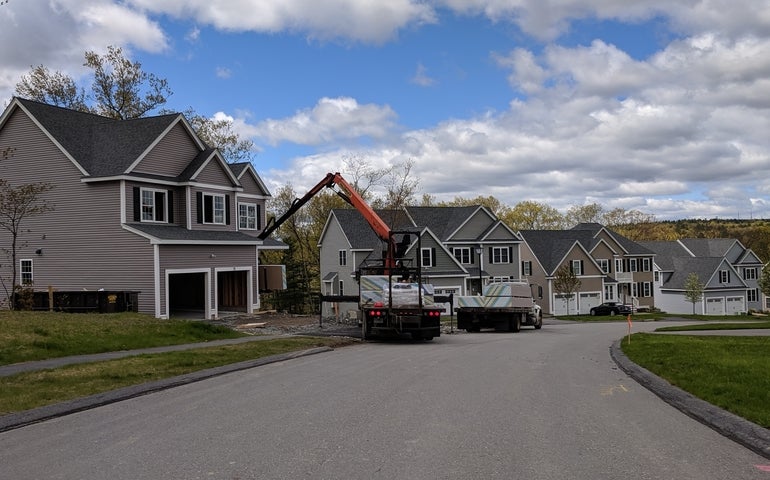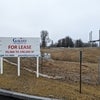Housing starts continue slow pace in Worcester metro area
 Photo | Grant Welker
The Homes at Oak Hill in Holden is one of relatively few new housing developments across the Worcester area.
Photo | Grant Welker
The Homes at Oak Hill in Holden is one of relatively few new housing developments across the Worcester area.
Greater Worcester continues to approve new home construction at a fraction of the pace it did before the Great Recession, according to new federal data released Thursday.
The Worcester metropolitan area approved 1,769 new housing units last year, according to the U.S. Census Bureau. That’s an increase of just one unit — less than 0.0005% — from the 1,768 units approved in 2017. The Census defines the Worcester metro area as Worcester County and Windham County, Conn.
While the Worcester metro area stayed flat, the rest of Massachusetts approved 12% more housing units last year than in 2017. Massachusetts approved 17,044 housing units last year, an increase of nearly 1,800 units.
Greater Boston approved the lion’s share of the state’s new housing growth — 14,183 in all — but fell by 3.9% from 2017 in its total number of 14,757.
Housing starts are considered a key indicator of a region's economic health, as housing starts tend to the result of people, jobs and wealth moving into a region, creating more demand for housing.
Other metro areas in New England generally approved more housing units last year than in 2017.
Greater Manchester, N.H., for example, approved 1,406 new homes — an increase of 36% from the previous year. The Burlington, Vt., area saw a 34% increase to 1,164 homes.
The Portland, Maine, area continued adding new homes at the largest number in New England outside Greater Boston. The Portland area approved 2,624 homes last year, up 4.2%. The Springfield and Barnstable areas also saw increases, of 26.5% and 15.4%, respectively, even as their overall numbers remained low.
Providence's approved units fell slighly, by 2.3%, to 1,963 units, while Hartford's increased 5.3% to 1,587 units.
Greater Worcester isn’t alone in growing at such a slow pace compared to since before the recession. The area’s new-home peak took place in 2004, when 3,692 homes were approved — more than double last year’s rate.
Despite the most recent year-to-year improvement, Massachusetts is approving new homes at vastly lower numbers than before the housing crash. In 2005, Massachusetts approved 24,549 units.
Nationally, housing starts are down by about one-third from before the recession. Last year saw a 3.6% year-to-year increase in those approvals, with more than 1.3 million.
State leaders in Massachusetts are certainly aware of the trend, expressing concern that not enough housing is being created to keep up with job creation, contributing to soaring home prices in many areas.
Gov. Charlie Baker has pitched a bill calling for 135,000 new housing units statewide by 2025. Massachusetts would have to nearly double its home construction pace of recent years to hit that number. Baker stopped by The Edge at Union Station, a Worcester apartment building, in May to generate support for the plan.
The bill would encourage more development by allowing a simple majority at local levels to rezone properties for transit-oriented or downtown development and granting increased density through a special permit process, among other measures.
The Baker Administration has already dangled incentives before communities to build more homes.
The Housing Choice Initiative gives preferential treatment for state capital funds for infrastructure and other projects to communities reaching a certain rate of new housing units or allowing denser development by special permit. Last fall, the state gave $4 million to such communities, including $250,000 each to Framingham and Littleton, and $165,000 to Acton.









0 Comments